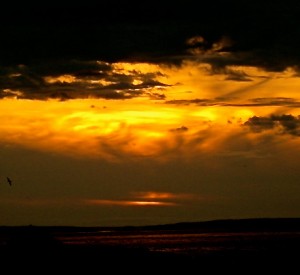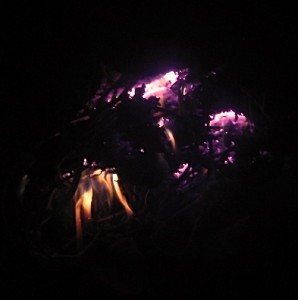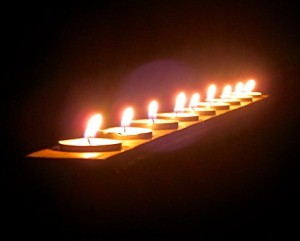
We are beings compelled to experience our wholeness. It’s intriguing to me how the shaman’s world, the Christian world, and the world in general covet substance—spirits—as the vehicle to parting the veils to divine wholeness. Substances are trickster spirits who would just as soon consume our life energy as let us pass through those veils. The history of AA captures the modern dance with spirits, the struggle with the ravages of spirit, and the eventual solution to lifting those elusive veils, revealing a possible path to wholeness.
Like an orphaned son seeking connection with his long lost biological father, Bill W. wrote to Carl Jung in 1961 to acknowledge him for his seminal role in the conception of AA. The crux of Jung’s input had been his suggestion in the 1930s to his alcoholic patient, Rowland H., that he seek a spiritual cure for his alcoholism.
Rowland H. took Jung’s advice to heart and went out and had a religious experience in an evangelical movement that was sweeping Europe at the time, which released him from the compulsion to drink. Rowland H’s experience was transmitted to Bill W., who at a very low point in his own active alcoholism, cried out to God in desperation and surrender.
“Suddenly, my room blazed with an indescribably white light,” he wrote in Pass It On. “I was seized with an ecstasy beyond description. Every joy I had known was pale by comparison. The light, the ecstasy—I was conscious of nothing else for a time.”
“Then, seen in the mind’s eye, there was a mountain,” he goes on. “I stood upon its summit, where a great wind blew. A wind, not of air, but of spirit. In great, clean strength, it blew right through me. Then came the blazing thought ‘You are a free man.’ I know not at all how long I remained in this state, but finally the light and the ecstasy subsided. I again saw the wall of my room. As I became more quiet, a great peace stole over me, and this was accompanied by a sensation difficult to describe. I became acutely conscious of a Presence which seemed like a veritable sea of living spirit. I lay on the shores of a new world. ‘This’ I thought, ‘must be the great reality. The God of the preachers.’ “
Bill W. never took another drink, and AA was born.

Jung replied to Bill W’s letter in 1961, shortly before he died. Speaking of Rowland H., in the letter transcribed into Pass It On, Jung states: “His craving for alcohol was the equivalent on a low level of the spiritual thirst of our being for wholeness, expressed in medieval language: the union with God.”
“How could one formulate such an insight in a language that is not misunderstood in our days?” Jung continued.
Jung knew that the medieval language around God had lost its value to serve the spiritual needs of modern humanity. Jung himself had experienced a profound vision in 1887 at the age of twelve.
“I saw before me the cathedral, the blue sky,” he writes in Memories, Dreams, Reflections. “God sits on His golden throne, high above the world—and from under the throne an enormous turd falls upon the sparkling new roof, shatters it, and breaks the walls of the cathedral asunder.”
Jung had come from a long line of Protestant preachers, but found himself utterly bored when his father was teaching him the catechism in preparation for his Confirmation.
In Volume 9, Part 1 of his Collected Works, Jung writes: “The catechism bored me unspeakably. One day I was turning over the pages of my little book, in the hope of finding something interesting, when my eye fell on the paragraphs about the Trinity. This interested me at once, and I waited impatiently for the lessons to get to that section. But when the longed-for lesson arrived, my father said: “We’ll skip this bit; I can’t make head or tail of it myself.” With that my last hope was laid in the grave. I admired my father’s honesty, but this did not alter the fact that from then on all talk of religion bored me to death.”
“Our intellect,” he continued, “has achieved the most tremendous things, but in the meantime our spiritual dwelling has fallen into disrepair.”
By the time Jung treated Rowland H., he had already taken his own numinous, spiritual journey into a living encounter with the collective unconscious, which he’d documented in his journals, recently published as the Red Book. Through his own experiences, Jung discovered that true healing could only be achieved through a deep, living encounter—a numinous experience—within the depths of the self, the God within/without.

Jung ended his letter to Bill W. by pointing out that, “Alcohol in Latin is spiritus, and you use the same word for the highest religious experience as well as for the most depraving poison. The helpful formula therefore is: spiritus contra spiritum.”
Alcohol is a spirit, what the shamans would call an entity. Entities are spirits that serve as gateways to the spirit world. The Christian Mass offers wine as the gateway to an ecstatic union with God in the sacrament of the Eucharist. Don Juan used hallucinogenic drugs called Allies to enable Carlos Castaneda to discover his deepest potential beyond the safeguards of the rational mind. However, as Jung clearly understood, such spirit entities that offer access to the deeper self, to union with God in this manner, always exact a price—spiritum—literally, the ravages of the spirit. And that is at the heart of addiction, getting caught in the ravages of the spirit.
It’s obvious that Jung proposed seeking a new means of intoxication of the spirit over imbibing of intoxicating spirits, suggesting that only a true union with God—spirit—could defeat addiction. Carlos Castaneda similarly warned about using drugs, having had personal experiences of the price exacted by the Allies—spiritum, as Jung points out. Castaneda suggested recapitulation and dreaming as the gateways to infinity. Jung developed active imagination and individuation as similar pathways to wholeness. AA developed the Twelve Steps as the Tao of wholeness. Different paths, same dictum, spiritus contra spiritum.
In spirit,
Chuck
